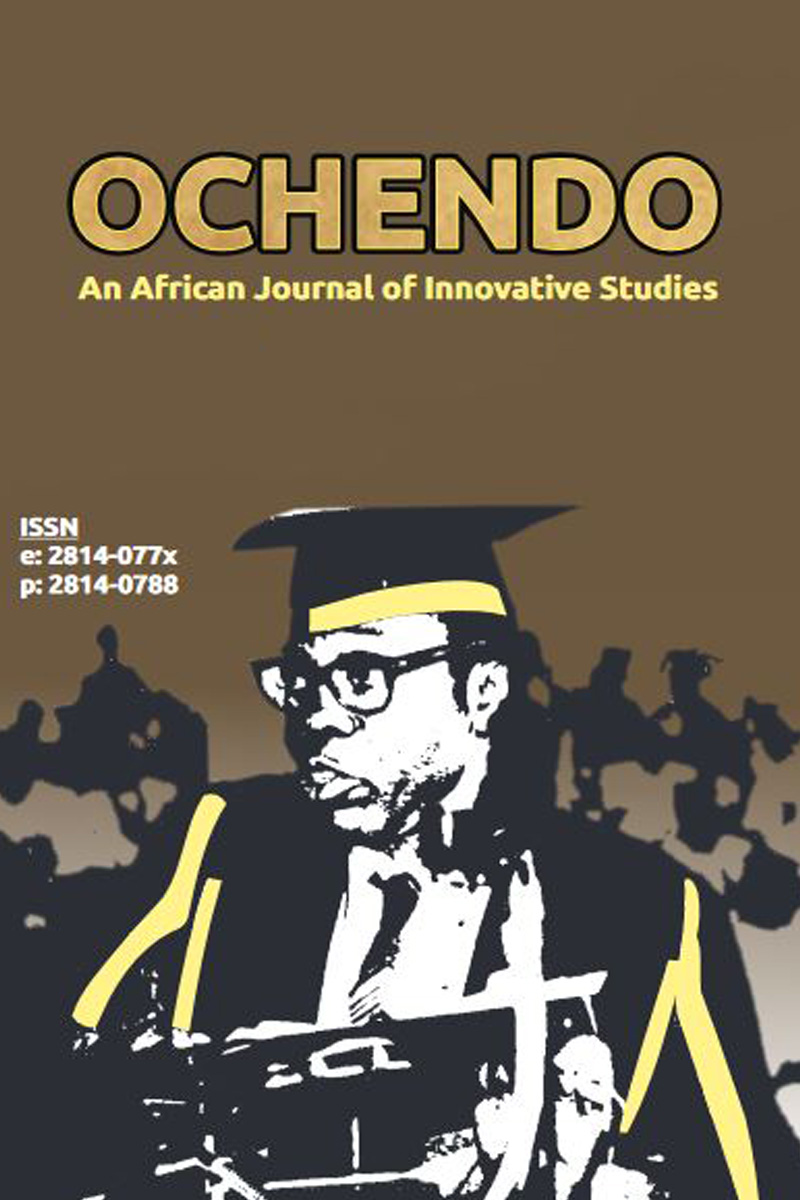 OCHENDO - An African Journal of Innovative Studies (OAAJIS) (Vol. 4 No. 4, 2023)
THE TOXIC MASCULINITY IN GUILLAUME OYONO MBIA'S TROIS PRETENDANTS….UN MARI
OCHENDO - An African Journal of Innovative Studies (OAAJIS) (Vol. 4 No. 4, 2023)
THE TOXIC MASCULINITY IN GUILLAUME OYONO MBIA'S TROIS PRETENDANTS….UN MARI
ABSTRACT
Masculinity has long been associated with traits such as dominance, aggression, and strength. However, these traits have been utilized to justify a culture of harmful behaviour among men. This pervasive tradition of toxic masculinity can have disastrous consequences for individuals and society as a whole. It is particularly prevalent in some parts of the world. Guillaume Oyono Mbia in his piece of work Trois prétendants.....un mari, depicts the adverse effects of destructive male behavior on women's lives and society. The protagonist Juliette faces numerous hardships at the hands of her suitors and father, who prioritize their desires over her well-being. This harmful character among men can manifest in various forms, including physical abuse, violence, emotional abuse, sexual harassment, and controlling behaviour. These behaviours are often normalized or justified, perpetuating a cycle of harm and oppression. The following also have a negative impact on men, as they may feel pressured to conform to hurtful gender norms, resulting in adverse effects on their relationships and mental health. Through the application of gender and masculinity theories, this article explores the portrayal of toxic masculinity in the drama Trois prétendants.....un mari. By exploring the power dynamics in this work, this article aims at bringing out a better understanding of how gender expectations and norms can influence, and shape social behaviour, and how it can be harmful and oppressive. This requires a collective effort to raise awareness and challenge harmful gender stereotypes, creating a more inclusive and equitable society for all genders.

